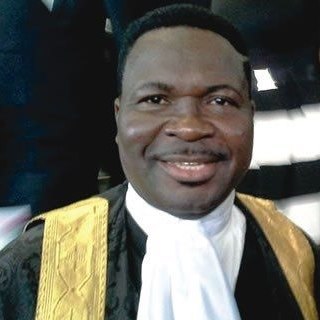INTRODUCTION
Why has the new Companies and Allied Matters Act, 2020 (CAMA) generated
so much hoopla and controversy? It is because its unique provisions make it
possible for CAMA officials to take over a Church, Mosque, or an NGO, appoint a
Bishop, Imam, Overseers, or Executive Director of their choice, and even decide
what sermon, homily or Khutbah shall be disseminated to the adherents. This
sounds like a fairy tale. But, it is real, if not carefully handled.
On the 7th of August 2020, President Buhari signed the CAMA into Law.
The Act repeals the Companies and Allied Matters Act, of 2004. The Act
addresses the lapses in the old Act and equally introduces new provisions to
regulate businesses in line with international best practices. It has been
hailed in several quarters as the most important business legislation to come
out of Nigeria in the last thirty years. However, despite the resonating
plaudits generated by the Act, in numerous quarters, we must be circumspect and
cautious in our euphoria and cyber-rattling. There is need for this cautious
oxymoron of making haste slowly”.
SOME LITTLE HISTORY
The new CAMA has roots in the Companies Act, 1968. However, the 1968 Act
had itself been repealed by the CAMA Act of 1990; which improved on the 1968
Act.
With the passing of the new CAMA bill to amend the 1990 CAMA by both
Houses of the NASS since 2019. However, in the snail like pace and frustrating
nonchalance that the Buhari administration has become typically legendary and
accustomed to, there was neither an assent nor a veto of the Bill by the
President throughout the remainder of President Buhari’s first tenure. The Bill
for the amendment of CAMA, 1990, had to be represented to the Senate by the
current Senate Leader, Senator Abdullahi Yahaya. It was subsequently passed by
the Senate on10th March, 2020.
It again took the President over six months to finally assent to the
Bill on 7thAugust, 2020.This was the first major challenge of the Act that
raised eyebrows, having regard to section 58(4) of the Constitution which gives
the President only thirty days from the day that a Bill is presented to him to
grant Presidential assent or refusal. In the case of the amended CAMA, 2020, it
took over six months after the amendment bill had been passed by the NASS for
the President to grant his assent. Is the 2020 CAMA Act constitutional?
The provision of Section 839 of CAMA has generated much hoopla and
ruckus. A barrage of criticisms from churches, the Civil Society and of course,
public commentators, has since visited it.The contentious Section 839 of CAMA
provides:
“(1) The Commission
may by order
suspend the trustees
of an association
and appoint an interim
manager or managers
to manage the
affairs of an association where it reasonably believes
that:
(a) there is
or has been
any misconduct or mismanagement in
the administration of the
association;
(b) it is necessary or desirable for the purpose of —
(i) protecting the property of the association,
(ii) securing a proper application for the property of the association
towards achieving the objects of the association, the purposes of the
association of that property or of the property coming to the association,
(iii) public interest; or
(c) the affairs of
the association are
being run fraudulently.
(2) The trustees shall be suspended by an order of Court upon the
petition of the Commission or members consisting one-fifth of the association
and the petitioners shall present all reasonable evidence or such evidence as
requested by the Court in respect of the petition”.
In a nutshell, Section 839 of CAMA 2020 states that the Corporate
Affairs Commission can unilaterally suspend the trustees of any Association
that is registered as Incorporated Trustees, such as the Heads of churches,
Mosques, Executive Directors of NGOs, etc. The Section goes on in a mindless
arrogation of supremacy to the CAC over the Constitution, to provide that such
trustees can be removed where the Commission “reasonably believes” that the
trustees are involved in “misconduct or mismanagement in the affairs of the
association”; or where the removal of the Trustees would be necessary for the
protection of the property of the Association; or where the removal of such
trustees is “in public interest”; etc. This Section also appears to donate
untrammeled powers to the CAC, to usurp the investigative powers of law
enforcement agencies.
This provision virtually confers supremacy on the CAC over
constitutional provisions, to the extent that the CAC can remove the trustees
of an Association based solely on its“reasonable belief”. This portends danger
for Nigeria’s fragile and already over conscripted civic space, because by
virtue of the amended CAMA, all that would be required to remove the Executive
Director or the General Overseer or Bishop of a registered Church, or Imam of a
Mosque whom the Government is not comfortable with, is the magical wand of “reasonable
belief” that such Executive Director, General overseer or Bishop has been
involved in the mismanagement of the NGO or Church. This is arbitrary,
whimsical and capricious. Also affected by the section 839 are charitable
organizations, educational institutions, socio-cultural organizations and
clubs, etc.
Where is the right to fair hearing guaranteed by section 36 of the 1999
Constitution,which is the grundnormand the font et origo of Nigeria’s
statehood?
The mere fact that the CAC can unilaterally remove the Trustees of an
Association on nothing more than its “reasonable belief” of “misconduct” by the
trustees is ominous – not just for the Associations, but also for the entire
civic space.
Section 839(2) CAMA however appears to douse this fear by providing that
“the trustees shall be suspended by an order of court upon the petition of the
Commission or Members consisting of one-fifth of the association and the
petitioners shall present all reasonable evidence or such evidence as requested
by the court in respect of the petition”.
If one may ask, what are the conditions precedents before a case for the
removal or suspension of a Trustee for 12 months can be instituted based on a
petition by the CAC, which leads to appointment of trustees for “the proper
administration of the association”? Yes, the CAC can even appoint an interim
manager to act as receiver and manager over the church’s property.
Furthermore, the grounds for the unilateral removal of the trustees of
an association by the CAC are, to say the least, quite vague. For example,
Section 839(1)(b)(iii) basically entails that the CAC can remove the trustees
of an association “in the interest of public interest”. What is this “public
interest?”. Who determines it? What is the measure of “public interest”? The
vagueness of some decisive terms is definitely problematic. As a budding
journalist, David Hundeyin, explained, “the Buhari Administration or any of its
successors can now legally take over Amnesty Nigeria, SERAP or any similar organizations
it has previously antagonized openly, if their definition of “public interest”
means “the government must not be embarrassed.” Surely, this is dangerous for
our already overburdened democracy.
THE FEARS
The amended CAMA 2020 attempted to enhance the ease of doing business in
Nigeria and to generally bring Nigeria up to speed with globally accepted best
practices. But, in trying to do so, the Act has become a burdensome albatross
on the neck of civil societies, the Church and Mosque. It presents a ready
opportunity for the Nigerian State apparatus to further shrink Nigeria’s civic
state, and unleash its deadly arsenal on opposition, rights Activists,
dissenters and critics of government.
To this end, these identified negative aspects of the amended 2020 CAMA
should be resisted by all men and women of goodwill Civil societies and
religious bodies (who are the main targets of the Act) must instigate a serious
legal challenge to ensure that the Act does not bastardise their activities.
The validity and constitutionality of these sections of the Act must be tested
at every level of courts in Nigeria.
ALLAYING THESE FEARS
The fears generated by the new CAMA may have however been overblown.
Section 839 (a) for example only penalizes for misconduct, fraud or
mismanagement in the administration of an association, and to protect its
property towards achieving its objectives. Section 839 (2) makes it clear that
20% of members of the trustees of such an organization must sign a petition
before a court of law.
Who is afraid of provisions of a law meant to instill discipline in the
affairs and conduct of a church, mosque, or NGO? Are they saying the society
should remain indifferent to stinking corruption within them? I wholly disagree
with them.
The point must equally be emphasized that these
“not-for-profit”organisations, whether Churches, Mosques, etc, NGOs must
themselves be above board like Caesar’s wife. The only reason they are accorded
tax-free existence is because of the belief that they will add value to the
society, by ploughing back their would-be taxation into the society to help the
needy and most vulnerable. Are many of them actually do this? It does not
appear so. Many of them plough their income and tithes into profitable
ventures, building universities, buying private jets, building mansions, etc.
Why should they not pay tax for such commercial activities? Mercifully, the
Catholic Church is quite different from this new genre of Pentecostal Churches,
that are mostly profit-driven and very worldly in their orientation and
affairs.
The greatest edge the Catholic Church however has over them is that the
Catholic Church is holy, one, universal and apostolic, it therefore requires no
registration with the Corporate Affairs Commission (CAC). The Catholic Church
is the only church founded by Christ Himself. In Mathew 16.18, Jesus said to
peter, “Thou art Peter, and upon this rock I will build my Church; and the
gates of hell shall not prevail against it. And I will give unto thee the keys
of the kingdom of heaven; and whatsoever thou shalt bind on earth shall be
bound in heaven: and whatsoever thou shall loose on earth shall be loosed in
heaven”. One can also, albeit cautiously, therefore say that the fears of a
take-over of its affairs by the CAC under CAMA, will not arise.

